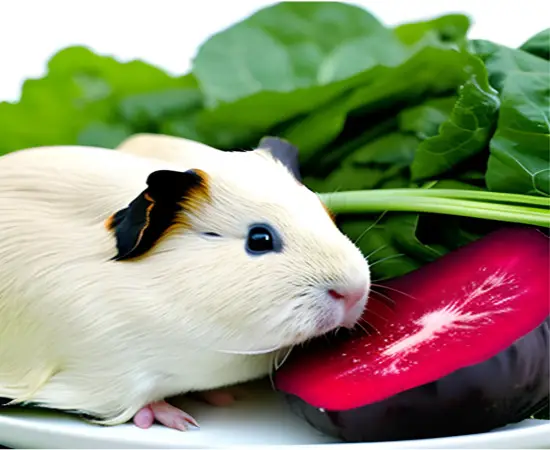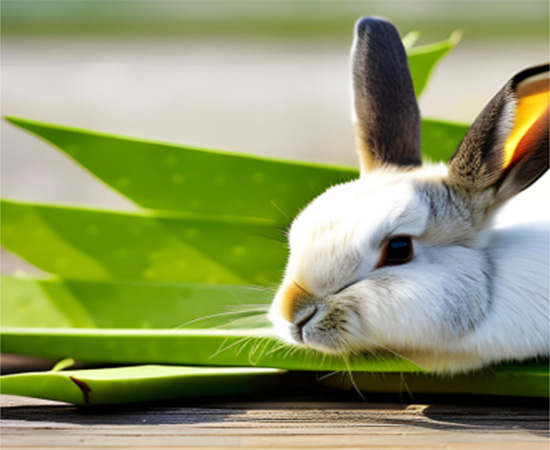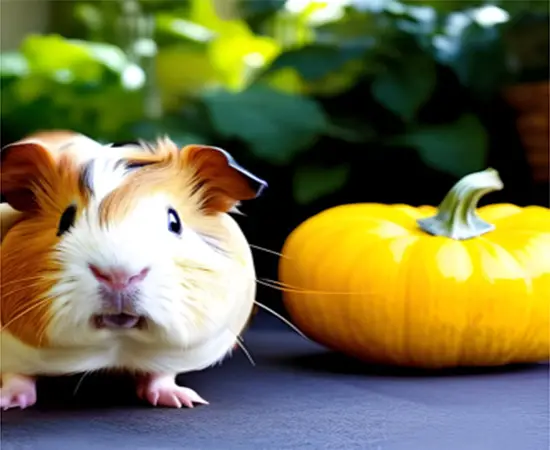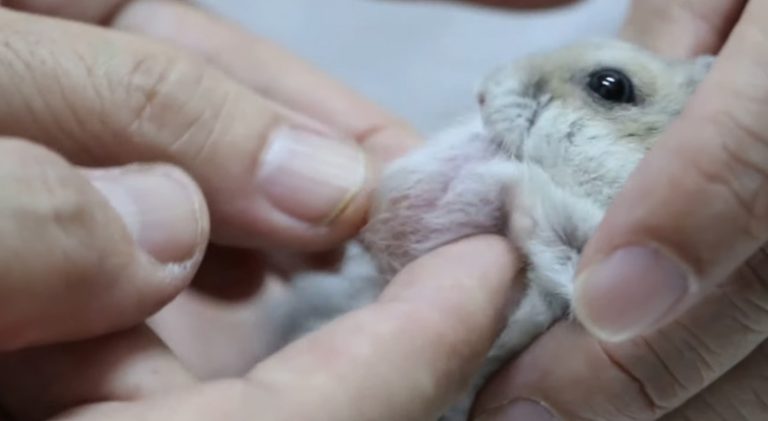Ever wondered if squirrels have a taste for the sweet, juicy goodness of grapes? The answer is a resounding yes! Squirrels, those delightful acrobats of the animal kingdom, do indeed enjoy munching on grapes. But there’s more to this fruity tale than meets the eye.
Join us on a journey into the world of squirrels and grapes, where we’ll reveal the secrets of their diet, exploring why grapes are both a treat and a responsibility for these furry visitors. Get ready to unlock the secrets of whether squirrels can eat grapes and what it means for their health and happiness.

Do Squirrels Eat Grapes?
Squirrels are known for their diverse diets, which adapt to the offerings of their natural habitat. Let’s delve into their dietary preferences and see if grapes make the cut.
Exploring the Natural Diet of Squirrels
Squirrels are omnivorous creatures, meaning they have a broad palette when it comes to food. Their natural diet consists of a variety of items, primarily foraged from trees and the ground. Nuts, such as acorns and walnuts, are staples in their diet, providing essential fats and proteins.
Additionally, they indulge in seeds, including sunflower seeds and pine seeds, to satisfy their nutritional needs. Fruits and vegetables also find their way into a squirrel’s menu, with preferences for offerings like apples, berries, and even the occasional mushroom. Furthermore, they’re not averse to munching on insects or bird eggs, which supplement their diet with protein.
Common Misconceptions About Squirrels and Grapes
There are several misconceptions surrounding squirrels and grapes that merit clarification. One prevalent misconception is that squirrels cannot eat grapes at all. However, as we’ve established, squirrels are adaptable eaters and are known to consume grapes when available.
Another misconception pertains to the belief that grapes are the primary source of sustenance for squirrels, leading well-intentioned individuals to offer them grapes in abundance. This can be problematic, as grapes should be viewed as an occasional treat rather than a dietary staple for squirrels.
Understanding these misconceptions is pivotal in responsibly providing for our furry friends and ensuring their overall health. Next, we’ll delve deeper into the health implications of grapes in a squirrel’s diet.
Are Grapes Healthy For Squirrels?
Squirrels, like humans, can enjoy certain nutritional benefits from consuming grapes, but it’s important to strike a balance and be mindful of potential risks and concerns.
Nutritional Benefits of Grapes
Grapes offer a range of essential nutrients that can contribute positively to a squirrel’s diet when provided in moderation. Here are some of the nutritional benefits of grapes for squirrels:
- Hydration: Grapes have a high water content, making them an excellent source of hydration for squirrels, especially during hot and dry seasons. Proper hydration is crucial for their overall well-being.
- Vitamins: Grapes contain vitamin C, an antioxidant that helps boost the immune system and protect squirrels from illnesses. Additionally, they provide small amounts of other vitamins like vitamin K and some B vitamins.
- Natural Sugars: Grapes contain natural sugars like fructose and glucose, which can provide a quick energy boost for squirrels. This can be particularly advantageous during periods of high activity or breeding seasons.
Potential Risks and Concerns
While grapes can offer nutritional benefits, there are potential risks associated with feeding them to squirrels:
- Sugar Content: Grapes, like many fruits, contain sugars. Excessive sugar consumption can lead to weight gain and dental issues in squirrels, just as it can in humans. It’s crucial to provide grapes as an occasional treat rather than a daily staple.
- Toxic Compounds: Grapes, especially their seeds, may contain compounds like tannins, which can be toxic to squirrels if consumed in large quantities. Eating grape seeds can lead to gastrointestinal upset and other health issues.
- Pesticides: If grapes have been treated with pesticides or chemicals, they can be harmful to squirrels. Always wash grapes thoroughly before offering them to ensure any residue is removed.
What Type Of Grapes Do Squirrels Eat?
Squirrels may not be connoisseurs of grape varieties, but they do have their own preferences when it comes to these plump, juicy morsels. Let’s delve into their grape selection process and whether they favor red, green, or black grapes.
Varieties of Grapes That Squirrels Prefer
Squirrels, in their quest for a tasty grape, typically do not discriminate among grape varieties. Whether it’s the rich and robust flavor of red grapes, the crisp sweetness of green grapes, or the intense juiciness of black grapes, these adaptable little foragers are known to munch on all three. Their choice often depends on what’s readily available in their habitat.
If you’ve noticed squirrels nibbling on your grapes, it’s because they’ve found them appealing, regardless of the grape’s color.
Do They Have Preferences for Red, Green, or Black Grapes?
While squirrels may not exhibit a strong preference for one grape color over another, they do tend to choose ripe grapes. Ripe grapes are softer and easier to consume, making them a more attractive option for these agile nibblers. It’s essential to ensure that you offer grapes that are at the peak of ripeness if you wish to entice squirrels to enjoy this fruity delight.
Keep in mind that squirrels are opportunistic feeders, so they are likely to savor whatever grapes happen to be available in their environment, regardless of their color.
How To Feed Squirrels Grapes
When it comes to sharing grapes with squirrels, following best practices is essential to ensure a safe and enjoyable experience for both the squirrels and ourselves. These guidelines not only enhance the well-being of our furry friends but also minimize any potential risks.
Best Practices for Offering Grapes to Squirrels
- Freshness Matters: Squirrels, like any discerning diners, appreciate fresh food. Ensure the grapes you offer are ripe and free from mold or rot. Overripe grapes can ferment quickly, leading to alcohol production, which can be harmful to squirrels.
- Washing Grapes: Just as we wash our fruits before consumption, it’s a good idea to rinse grapes thoroughly. This helps remove any pesticides or residue that may be present.
- Moderation is Key: While squirrels can enjoy grapes as part of their diet, they should be considered a treat rather than a staple. Offer grapes in small quantities, as excessive consumption of sugary fruits can lead to weight gain and health issues.
- Chopped or Whole: You can choose to offer grapes either whole or chopped into smaller pieces. Whole grapes provide enrichment for squirrels, as they can gnaw on them to access the juicy interior. Chopped grapes are easier for younger squirrels or those with dental issues to consume.
- Placement Matters: To make the experience more interactive and enjoyable, place grapes on a squirrel-friendly feeding platform or in a shallow dish. This allows squirrels to approach and feast comfortably.
Safety Considerations for Both Squirrels and Humans
- Pest Control: Regularly clean and maintain feeding areas to prevent the spread of disease and discourage unwanted pests. Bird feeders can sometimes attract squirrels, but by keeping these areas clean, you can minimize such occurrences.
- Hands-Off Approach: Squirrels are wild animals, and it’s essential to maintain a hands-off approach. Feeding them should not involve direct contact. Avoid attempting to hand-feed squirrels, as they may perceive your hand as a threat.
- No Harmful Additives: Do not add any additives or condiments to grapes. Squirrels should consume grapes in their natural state, without the addition of salt, sugar, or any other substances.
By adhering to these best practices and safety considerations, you can create a safe and enjoyable grape-eating experience for the squirrels that visit your garden or outdoor space. This not only ensures their well-being but also adds a touch of natural wonder to their surroundings.
What is the Nutritional Value of Grapes for Squirrels?
When contemplating the inclusion of grapes in a squirrel’s diet, understanding the nutritional bounty these tiny fruits offer is crucial. Let’s embark on a voyage through the world of grape nutrients and their role in sustaining our squirrel friends.
Detailed Breakdown of Grape Nutrients
Grapes, whether red, green, or black, pack a nutritious punch. They are primarily composed of water, making them an excellent source of hydration for squirrels, especially during warm weather. Beyond their moisture content, grapes offer a spectrum of essential nutrients:
- Natural Sugars: Grapes contain fructose, a natural sugar that provides a quick energy boost. Squirrels benefit from this energy source, aiding in their daily activities like foraging and nest-building.
- Vitamins: Grapes are rich in vitamins, particularly vitamin C. This vitamin plays a crucial role in maintaining a squirrel’s overall health, supporting their immune system, and assisting in wound healing.
- Antioxidants: Grapes are brimming with antioxidants, such as resveratrol, quercetin, and catechins. These compounds help combat oxidative stress in a squirrel’s body, potentially prolonging their lifespan.
- Dietary Fiber: The fiber content in grapes aids in digestion and can be beneficial for squirrels, ensuring regular bowel movements and preventing constipation.
How Grapes Contribute to a Squirrel’s Diet
Incorporating grapes into a squirrel’s diet can be a nutritious addition when offered in moderation. These fruits provide a refreshing source of hydration, essential sugars for energy, and a boost of vitamins that promote their overall well-being.
However, it’s important to exercise caution and avoid overindulgence, as grapes, like any treat, should be part of a balanced diet. Too many grapes can lead to excessive sugar intake and potential weight gain, which may have adverse effects on a squirrel’s health.
Consequently, while grapes offer valuable nutrients, a diverse diet that includes nuts, seeds, and other fruits should remain the cornerstone of a squirrel’s nutritional intake.
What are the Health Benefits Of Grapes For Squirrels?
As we delve deeper into the squirrel’s gastronomic preferences, it’s imperative to explore the potential health benefits that grapes can offer these agile rodents.
Positive Effects of Grapes on Squirrel Health
Grapes, with their vibrant mix of vitamins and antioxidants, can indeed provide a nutritional boost to squirrels when integrated sensibly into their diet. One notable benefit is hydration; grapes boast a high water content, making them an excellent source of essential fluids, especially during hot summer months. Squirrels can benefit from this hydration, especially when other water sources might be scarce.
Furthermore, grapes contain vitamin C, which contributes to overall health and immunity. This vital vitamin assists in the formation of collagen, essential for the maintenance of healthy skin and connective tissues in squirrels. Additionally, vitamin C acts as an antioxidant, helping to combat oxidative stress and bolster the squirrel’s immune system, which is crucial for their survival.
How Grapes Can Support Their Overall Well-Being
Beyond hydration and immune support, grapes offer a natural energy boost. Squirrels lead active lives, leaping between trees and foraging for food. The natural sugars in grapes provide a quick source of energy, helping these agile creatures maintain their vigorous lifestyles.
Moreover, the dietary fiber in grapes aids in digestion for squirrels, promoting healthy gut function. A balanced digestive system is essential for nutrient absorption and overall well-being, ensuring that the squirrel can extract maximum nutritional value from its varied diet.
When Should You Avoid Feeding Squirrels Grapes?
As much as squirrels can enjoy grapes, there are certain circumstances when offering them this fruit should be avoided to ensure the well-being of these bushy-tailed creatures.
Instances When Grape Consumption May Be Harmful
- Excessive Consumption: Squirrels, like many animals, can overindulge if an abundance of grapes is available. Excessive grape consumption can lead to obesity due to the high sugar content. It’s crucial to limit the quantity of grapes provided to prevent health issues.
- Seed Ingestion: Grapes contain small seeds that, when consumed in large amounts, can pose a risk to squirrels. These seeds can accumulate in their digestive system and potentially cause blockages, which may require veterinary intervention.
- Fermentation: Overripe grapes can ferment, leading to alcohol production. Squirrels, like most animals, are not equipped to metabolize alcohol, and it can be toxic to them. Ensure you offer fresh grapes and remove any that have started to spoil.
Alternatives to Grapes for Squirrel Feeding
While squirrels can enjoy grapes in moderation, there are plenty of other options to diversify their diet and keep them healthy:
- Nuts: Squirrels are renowned for their love of nuts. Offer unsalted, unroasted nuts like almonds, walnuts, and hazelnuts. These provide essential fats and protein.
- Seeds: Sunflower seeds, pumpkin seeds, and unsalted peanuts are nutritious alternatives that squirrels relish. They are rich in healthy fats, proteins, and vitamins.
- Fruits: Besides grapes, you can provide fruits like apples, pears, and berries in small quantities. These offer vitamins and hydration.
- Vegetables: Squirrels enjoy vegetables such as carrots, broccoli, and leafy greens. These provide essential vitamins and fiber.
- Commercial Squirrel Food: Specialized squirrel food blends are available in pet stores. These are formulated to meet squirrels’ nutritional needs.
Frequently Asked Questions (FAQ)
Can squirrels eat grapes every day?
Squirrels can enjoy grapes as an occasional treat, but they shouldn’t be fed grapes daily. Moderation is key to preventing potential health issues due to the high sugar content.
Are there specific grape varieties that squirrels prefer?
Squirrels don’t have strong grape preferences; they will consume red, green, or black grapes if available. The ripeness of the grapes often matters more to them.
Are grape seeds harmful to squirrels?
Grape seeds can be toxic if ingested in large quantities. While squirrels may eat small amounts of seeds, it’s best to offer seedless grapes or remove the seeds before feeding them.
What other foods can I safely feed squirrels?
Squirrels enjoy a varied diet, including nuts, seeds, fruits, vegetables, and insects. Some safe options include unsalted nuts, sunflower seeds, and fresh vegetables.
Should I avoid feeding squirrels grapes during certain seasons?
While you can offer grapes year-round, be mindful of seasonal changes. In colder months, squirrels may benefit more from nuts and seeds, which provide essential fats for warmth.
Can grapes be harmful to other wildlife in my garden?
Grapes can attract other wildlife like birds and raccoons. To minimize unintended interactions, consider using designated squirrel feeders and placing grapes accordingly.
Can I feed squirrels raisins instead of grapes?
Raisins can be an alternative to grapes but should be offered in small quantities due to their concentrated sugar content. Soak them in water to ensure they are easier for squirrels to chew and digest.
Conclusion
In summary, this article has shed light on the intriguing question of whether squirrels can safely enjoy grapes. We’ve learned that squirrels are naturally omnivorous and can incorporate grapes into their diet when offered in moderation.
However, it’s essential to strike a balance, considering the potential risks associated with excessive grape consumption, including weight gain and the toxicity of grape seeds. To ensure the well-being of these charming garden inhabitants, responsible feeding practices should always be encouraged.
So, as you enjoy the delightful company of squirrels in your surroundings, remember that a thoughtful approach to their diet will contribute to their health and happiness.


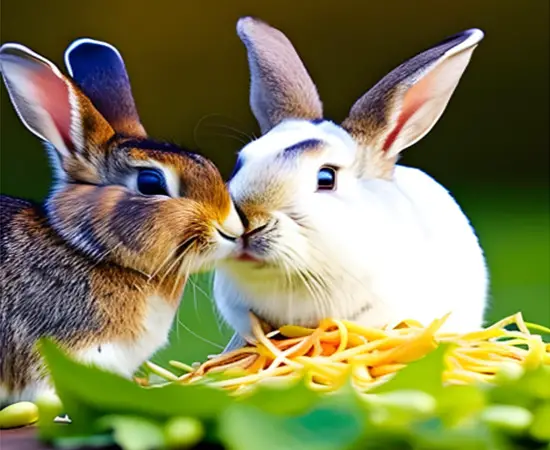
![What Can Guinea Pigs Eat [A Pro Guide]](https://www.rodentsfamily.com/wp-content/uploads/2023/08/What-Can-Guinea-Pigs-Eat.jpg)
